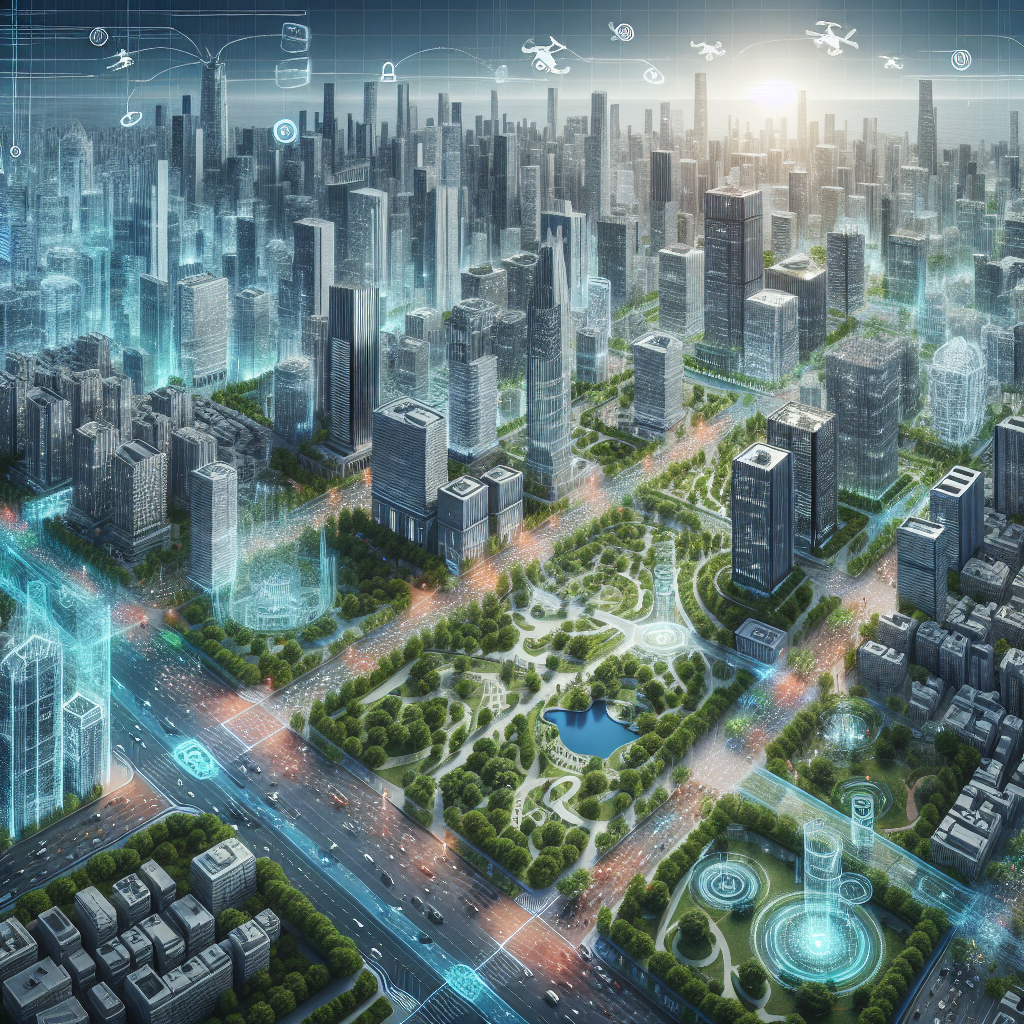The Impact of AI Integration on Urban Planning
Urban planning is a complex process that involves the design and organization of cities and towns in order to create sustainable and livable environments for their residents. With the rapid advancement of technology, particularly in the field of artificial intelligence (AI), urban planners are now able to leverage AI tools and techniques to enhance the planning process and make more informed decisions.
AI integration in urban planning has the potential to revolutionize the way cities are designed, built, and managed. By utilizing AI algorithms, planners can analyze vast amounts of data in real-time to gain insights into traffic patterns, population density, infrastructure needs, and more. This data-driven approach allows for more accurate predictions and better decision-making, ultimately leading to more efficient and sustainable urban development.
One of the key benefits of AI integration in urban planning is its ability to optimize resource allocation. By analyzing data on transportation, energy consumption, waste management, and other factors, AI can help planners identify areas where resources are being underutilized or misallocated. This can lead to cost savings, improved service delivery, and a more equitable distribution of resources throughout the city.
AI can also assist in the design of more resilient and sustainable urban infrastructure. By analyzing data on climate change, natural disasters, and other environmental factors, planners can use AI to develop strategies for mitigating risks and enhancing the resilience of cities. This can include designing buildings with better insulation, improving drainage systems to prevent flooding, and implementing green spaces to reduce heat island effects.
Another important aspect of AI integration in urban planning is its potential to improve public engagement and participation. By using AI-powered tools such as virtual reality simulations and interactive maps, planners can provide residents with a more immersive and interactive experience when it comes to participating in the planning process. This can help foster greater community involvement and collaboration, leading to more inclusive and responsive urban development projects.
Despite its many benefits, AI integration in urban planning also raises some challenges and concerns. One of the main issues is the potential for bias in AI algorithms, which can lead to discriminatory outcomes in the planning process. In order to address this, planners must be vigilant in monitoring and mitigating bias in AI systems, and ensure that they are designed and implemented in a fair and transparent manner.
Another concern is the impact of AI on job displacement in the urban planning profession. As AI tools become more sophisticated and capable of performing tasks traditionally done by humans, there is a risk that some planning jobs may become obsolete. However, many experts argue that AI will not replace planners entirely, but rather augment their capabilities and allow them to focus on more strategic and creative aspects of the planning process.
Overall, the integration of AI in urban planning has the potential to bring about significant benefits in terms of efficiency, sustainability, and public engagement. By harnessing the power of AI to analyze data, optimize resources, and enhance resilience, planners can create more livable and resilient cities for future generations.
FAQs
Q: How is AI being used in urban planning?
A: AI is being used in urban planning to analyze data on traffic patterns, population density, infrastructure needs, and other factors in order to make more informed decisions. AI algorithms can also optimize resource allocation, design resilient infrastructure, and improve public engagement in the planning process.
Q: What are the benefits of AI integration in urban planning?
A: The benefits of AI integration in urban planning include more efficient resource allocation, more sustainable infrastructure design, and greater public engagement and participation in the planning process.
Q: What are some of the challenges of AI integration in urban planning?
A: Some of the challenges of AI integration in urban planning include the potential for bias in AI algorithms, job displacement in the planning profession, and the need for ongoing monitoring and mitigation of bias in AI systems.
Q: Will AI replace urban planners?
A: While AI has the potential to automate certain tasks in urban planning, it is unlikely to replace planners entirely. Instead, AI will augment planners’ capabilities and allow them to focus on more strategic and creative aspects of the planning process.

